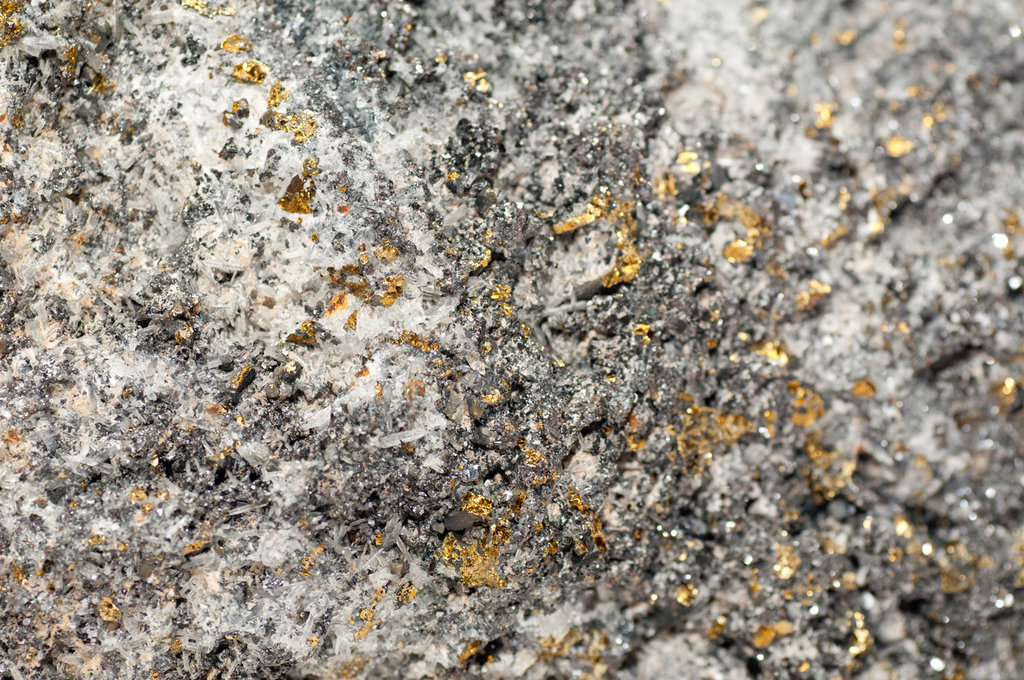Interview
What role does the UK have to play in the rare earth sector?
Despite having limited rare earth reserves, the UK is still eager to make moves in the sector. Elliot Gardner speaks to Professor Frances Wall on the topic.

Professor Frances Wall, Camborne School of Mines
In July 2022, the UK government launched ‘Resilience for the Future: The UK’s Critical Mineral Strategy’, a landmark strategy aimed at recognising the importance of critical minerals to British modern daily life, and securing a supply chain to protect UK interests and investments in this vital sector.
In March 2023, the government updated this commitment, putting a spotlight on funding and initiatives in place to deliver on its strategy, including an $18.6m (£15m) fund through UK Research and Innovation (UKRI) to boost rare earth element supply chains reliant on the UK and, and ensure the resilience of these supplies of critical minerals.
In announcing the fund, the UKRI and the UK Department for Business and Trade highlighted the importance of critical minerals in developing clean energy technologies, the need for recycling technologies to secure UK critical mineral requirements and the importance of developing interests at home and abroad, important aspects of the supply chain that will be buoyed by the new funding.
But questions remain as to how best to implement these strategies, and how much of a role the UK can have when its domestic production of rare earths is limited. Professor Frances Wall, who is a professor of applied mineralogy at the Camborne School of Mines at the University of Exeter, and who helped advise the UK government’s critical mineral strategy, is uniquely positioned to answer some of these questions.
Elliot Gardner: The term “critical minerals” seems quite broad; can you help define what is meant when we refer to minerals this way?
Professor Frances Wall: Critical minerals are defined differently to different people in different places. But basically, we mean really specialist metals and rare earth elements with important properties that make our high-tech goods work.
They’re needed for clean technologies - like wind turbines, electric cars and solar panels - and all of our digital technologies. Although they’re not major metals, like steel or copper, many technologies won’t work without them. They’re absolutely essential, despite not being mined in very large quantities around the world.
The limited number of mines means that as a manufacturer, you don’t have much choice about where you’re buying from. This naturally leads to supply chain vulnerability. With Covid-19, and the war in Ukraine, governments have really been alerted to the potential for supply chain disruption, and with everyone internationally being in the same race to make electric cars and battery facilities, there’s significant competition. All of that blends together to create quite the agenda to excite politicians, which is why critical minerals are so in the news at the moment, I think.
Elliot Gardner: And this is why the UK government established a critical minerals strategy in 2022?
Professor Frances Wall: Yes, this is something that we’ve never had before. There was a rare earth crisis in 2010, and the UK did actually do some work in government then, but they didn’t publish a formal strategy. Whereas this time around, looking at factors like how the car industry is changing so fast, I’m pretty sure that’s what’s made the politicians - not just materials scientists, geologists and manufacturers - so interested in this agenda.
We don’t have world-class rare earth deposits in the UK - we just don’t have the right geology - so for the primary rare materials, we have to look overseas. There are certainly exploration companies that are based out of the UK but exploring overseas, and there are lots of places that have really promising deposits that will be processed or part-processed in-country and then further processed elsewhere, whether that’s the UK or somewhere else.

Ore sample. Credit: Wirestock Creators via Shutterstock
But we [also] do have less common metals in the UK that do make rare earth alloys, which is the next step in the supply chain. I’m not sure if anyone here is making rare earth motors, but that would be the next step, which would then be sold to UK car manufacturers, and then we could have a real supply chain.
But, of course, the more we drive electric cars and build wind turbines, the more we’re building up a kind of anthropogenic geo-resource; we’re bringing those materials here now and through recycling we’re ready to use them in the future. Places like Hypromag, which is a spinoff from Birmingham University, are thinking of processing rare earth magnets from hard disk drives and things to start with, and as more cars come to the end of their lives they’ll start to look at recycling those as well.
So on its own, the recycling tech is not going to supply a serious UK industry, but right now there isn’t a huge UK industry to supply. Though it’s something we’ll have to ramp up in the future to ensure a more resilient supply chain.
Elliot Gardner: What responsibilities do countries with limited rare earth deposits have to the global supply chain ?
Professor Frances Wall: I think we have a responsibility to behave well and help with sustainable development wherever we’re getting our materials from. To be honest, right now many of those supply chains are pretty opaque. If you’re buying a rare earth permanent magnet motor, what you buy - as I understand it - is the performance characteristics of the motor. You don’t know exactly what rare earths are in it, and you don’t know necessarily where it’s coming from.
It’s highly likely it will be from China, but a lot of heavy rare earths are now being brought in from Myanmar too, for example. The end product doesn’t come with a label, you simply don’t know where it’s coming from, and that brings with it a problem. As a manufacturer, it’s incredibly tricky to responsibly source your goods.
China dominates supply, but they don’t put any ‘responsible sourcing’ stamps on their motors when they sell them, and to be honest they don’t need to as there isn’t much choice.
That’s the point though, if there was more of a choice then the Chinese would have to join in with responsible sourcing to stay competitive. That’s one of the reasons there’s a lot of effort to find alternative mines to China right now. North America is trying to come online, and Australia has some deposits that are very well advanced as well.
But when we’re working with resources in areas such as Africa, the regulations are probably equally as good as Australia, but they may not have the resources to enforce them. That’s where we need to make sure that we’re doing things right.
Elliot Gardner: What vulnerabilities does the critical minerals supply chain have?
Professor Frances Wall: Well firstly, that there's a real dominant player, which is China. There are definitely deposits in other areas, many of which have been under development for more than ten years now and could start up pretty quickly if someone decided to come along and pay the money. In Malawi for example, or Namibia. Stuff’s there in the ground, and at quite an advanced exploration stage, but only if people want to pay for it.
The second vulnerability, though, is the reputational damage. People think that rare earths are really polluting because of news stories from China, so we need some good news stories about how you can produce rare earths in a sustainable way.
And then I guess for critical minerals in general, it’s not just about the processing of minerals, it’s the vulnerability of where they’re being mined. The processing for lithium might happen in China, but the deposits in the ground are being mined in Chile and Australia. If something went wrong in either Chile or Australia tomorrow and they had to close their supply chain, that would be a real problem.
Niobium is a good example, which is a key component in high-strength weldable steel in things like oil pipelines, as well as in superconductors and even some battery technologies. There’s a niobium mine in Brazil. I think it was the first mine in the world to have International Organization for Standardization environmental accreditation, but that mine absolutely dominates supply. It’s very close to being a monopoly. If something went wrong in Brazil tomorrow, the niobium supply would be chopped.